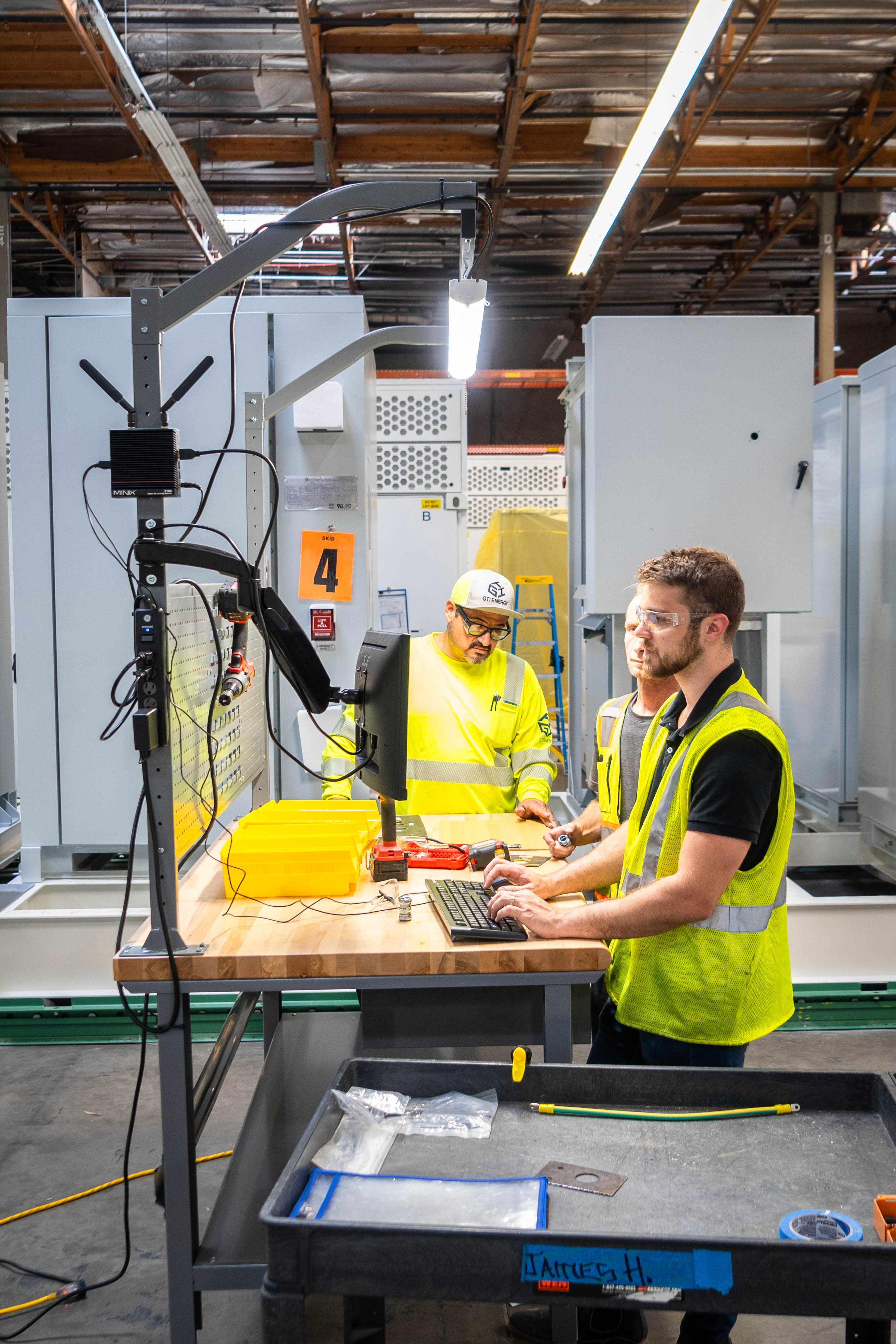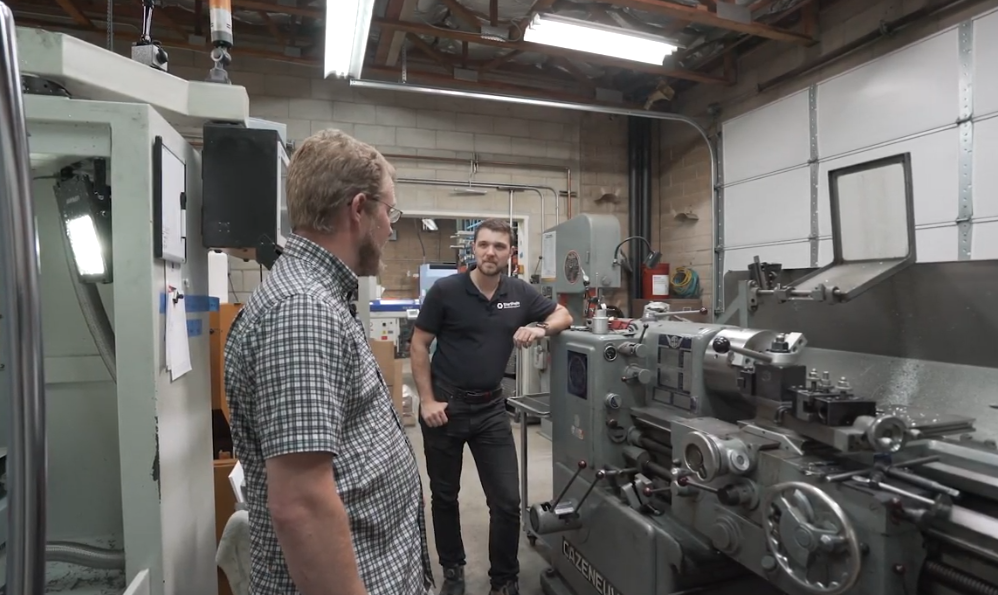
Running a job shop has unique challenges—short-run, custom jobs, constantly shifting deadlines, and complex processes to manage. If you’re here, chances are you’re exploring software solutions that can help you stay ahead. You’ve likely come across two terms: ERP (Enterprise Resource Planning) and MRP (Material Requirements Planning). Both promise to help, but which is right for your job shop?
Let’s dive into the ERP vs. MRP software debate and explore the differences, benefits, and limitations of each. By the end, you’ll know exactly what will work best for your operation.
ERP vs. MRP: What Are They?
Before we get too far, let’s define the terms.
MRP (Material Requirements Planning) focuses primarily on materials. It’s a system designed to ensure you have the right materials at the right time. It forecasts material requirements, schedules production, and manages inventory—key features for manufacturing environments where materials are critical.
ERP (Enterprise Resource Planning) is like MRP on steroids. It does everything MRP can, but it also incorporates functions for other parts of the business. We’re talking about finance, HR, project management, customer relationships, and more. ERP aims to give you an end-to-end solution for managing your business, not just your production.
Now that we’ve got the basics down, let’s look at how these systems match up in a job shop setting.
Why MRP Might Be Enough for Some Job Shops
MRP is laser-focused on production and materials management. If your job shop is centered around consistent, repetitive manufacturing processes with predictable material needs, MRP could be your go-to solution. Here’s why:
- Streamlined Inventory Management: The beauty of MRP lies in its ability to forecast material needs accurately. For job shops handling a small variety of products or parts, keeping track of materials is essential. MRP systems use data from current orders and production schedules to help you order the right amount of materials at the right time.
- Simple Implementation: MRP systems are usually easier to implement compared to ERP systems. They’re smaller in scope, meaning you can get them up and running quickly without the hassle of a full business overhaul.
- Lower Costs: Because MRP is a more focused tool, it typically comes with a smaller price tag. If you’re a small to mid-sized job shop, and your primary concern is managing production, MRP might give you the functionality you need without breaking the bank.
But here’s the catch—MRP can fall short if you’re looking to scale or if your business involves a lot of moving parts outside of production. That’s where ERP comes in.
The Case for ERP in Job Shops
While MRP does a great job of managing production, ERP offers a holistic approach. Job shops are inherently dynamic, with projects coming and going, requiring real-time insights across the entire business. Here’s why ERP might be the right move:
- All-in-One Solution: With ERP, you get a bird’s-eye view of everything—production, finances, HR, customer orders, and even sales forecasts. This can be a game-changer for job shops juggling multiple responsibilities beyond just making sure raw materials arrive on time.
- Better Data Integration: ERP pulls data from every department and consolidates it into one system. So, when a customer calls to make a change to their order, your shop floor, inventory, and finance departments all have access to the same updated information. You get improved coordination, reducing costly mistakes or bottlenecks.
- Scalability: As your job shop grows, so do your needs. ERP systems are scalable, meaning you can add modules as your business evolves. Starting small with basic inventory and production management? No problem—you can integrate more features like accounting, CRM, and advanced analytics as you expand.
- Enhanced Customer Management: In a custom job shop environment, customer satisfaction is everything. ERP gives you tools to manage customer relationships, from order intake to post-production support. It integrates communication, order tracking, and delivery schedules so nothing slips through the cracks.
- Real-Time Reporting: ERP systems offer powerful reporting tools. Need to know how a project is affecting your cash flow? Or maybe you’re trying to figure out if you have enough capacity for a rush order? ERP systems can generate real-time reports to give you that clarity.
What Are the Drawbacks?
No system is perfect, and ERP isn’t a silver bullet for every job shop.
- Cost: ERP systems, especially the fully integrated ones, can be expensive to implement and maintain. For smaller job shops, this can be a significant investment, both in terms of money and time.
- Complexity: ERP systems come with a learning curve. They’re comprehensive, which means training your team to use them effectively can take time. Plus, setting up an ERP solution requires you to evaluate your current workflows and possibly make changes.
The Bottom Line: Which One Is Right for You?
If your job shop is relatively small and focused on repetitive or predictable production, MRP may be all you need. It’s affordable, easier to implement, and designed to manage the material side of things perfectly.
However, if you’re dealing with a lot of custom orders, handling more complexity, or planning to scale, ERP offers far more functionality. It integrates every aspect of your business and provides the tools you need to grow.
So, what’s the verdict? It depends on your shop’s size, complexity, and growth plans. But one thing is for sure—both ERP and MRP can help you level up your job shop operations. It’s just a matter of picking the one that fits your needs.
Conclusion
Is StartProto an MRP or ERP?
StartProto is a lightweight ERP - meaning our cloud manufacturing software has all the functionality job shops need to scale without the cost and complexity of larger ERP systems. StartProto extends beyond traditional MRP functionality, with features like quoting and integrations that help you share data and work across multiple systems. StartProto is perfect for job shops looking to optimize production and grow.
StartProto is the best ERP for job shop manufacturing. Don’t believe us, hear what Loper Machine has to say.
Start for free today!
Unlock the potential of AI manufacturing
Blogs & Resources
Industry trends, manufacturing business tips, and more




